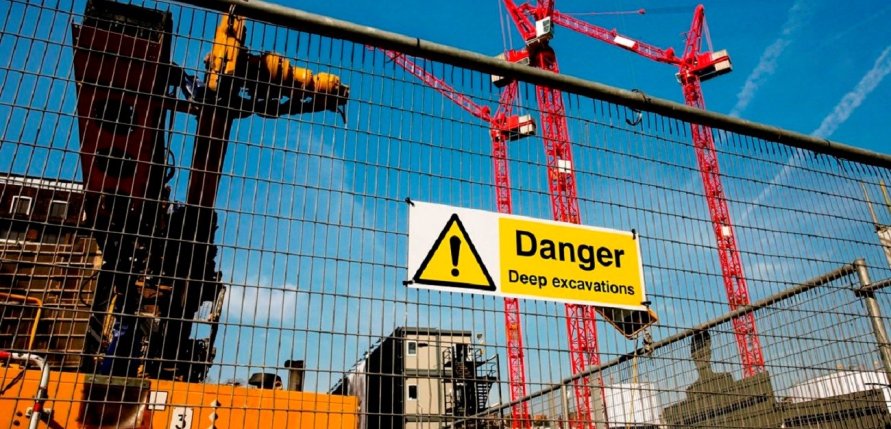
Theft.
Arson.
Vandalism.
The list could continue ….
If left unprotected a construction site can be a very tempting prospect for any number of criminal activities. And this is all without considering the effects of natural hazards such as floods, fire or storm damage.
What options are there available?
Making access harder with site/perimeter security
It may seem obvious, but something as simple as strong fences, gates and locks can act as a deterrent to many opportunist intruders. If you make it harder for them to get in there’s a good chance they’ll look elsewhere.
Making the site and anyone present visible with additional lighting
Anyone attempting to steal from a construction site wants to do so without being seen, so making sure the site is well lit at night increases the chances that they will be seen. Especially if the lights are motion sensor activated. Suddenly finding they are visible might be all it takes to scare off a potential thief or vandal.
Informing and warning people with signs & notices
Signs warning about restricted areas can be useful to inform people who may inadvertently wander into unauthorised areas. Trespassers might not be deliberately trying to do damage, but just being in a restricted area could cause a health and safety risk to them or those working on the site. The threat of prosecution and/or warnings about CCTV can also put people off.
Discouraging entry by using CCTV & Alarms
The use of CCTV cameras and alarms can be used to deter potential intruders as well as alerting staff, security or the police. Visible cameras and alarm systems make sure people know the site is protected and CCTV cameras and alarms can be monitored by security companies. Any indication of unauthorised access can be addressed quickly by sending out a mobile response unit and/or through a speaker system telling the trespasser to leave the premises or the Police will be called. Sprinkler systems can also be activated remotely to deter anyone from using the site for drug use or sleeping rough.
Monitoring site access by Security Guards
When the site is open and operational it’s important to know who is on site and ensure they are authorised. Gate security guards can check ID and record vehicle and individuals entry/exit, preventing those not allowed on site from gaining access. This is especially important for health and safety purposes and with the current increased risk of terrorism.
Site patrols to keep people out
Security Guards can also perform patrols of the site, inside and outside the perimeter fencing. These should be done at irregular intervals to prevent potential thieves working out the best time to target the site.
How to minimise risks to staff, site and equipment?
Professional security advice
Most construction site Managers will look to outsource the security element of their operation to a professional security guarding company. They will undertake a full risk assessment, co-ordinating with you to understand your needs and the potential hazards on the site. The results will help to determine which types of security are appropriate for your site and how much is needed. Regular reviews should be carried out to keep security up to date as work changes on the site.
Staff site induction & training
All staff working on site should undertake the relevant health & safety training and induction. They need to be aware of the potential hazards and how to deal with them safely. Emergency evacuation procedures must be understood by all. Security guards should already have completed health & safety, first aid and terrorism awareness training, and will need to be inducted to the site before they start working.
Company policies
Your security policy should include prevention and recovery. Putting the security processes into place will help prevent loss and damage, however if something does happen you need to be able to get back to work as quickly as possible. It isn’t just replacing equipment, delays to work can also be expensive.
CESAR scheme
The Construction & Agricultural Equipment Security and Registration scheme was designed by Police and the Construction & Agricultural Industries to provide simple and effective identification of machinery and equipment. The scheme provides a number of layers of security, including a tamper proof identification registration plate, radio frequency ID transponders, hundreds of unique Datadots and an invisible forensic DNA marking paint.
Equipment fitted with CESAR is six times more likely to be recovered by police, identified and returned to you. Find out more at the CESAR Scheme website.
Insurance
Your insurance is likely to work out cheaper if you follow the advice of a security expert and put prevention measures and procedures in place, and register with the CESAR scheme.
What can you do next?
For a site specific and detailed security assessment please get in touch, we’d be delighted to arrange for one of our Area Managers to meet you and review your options.

